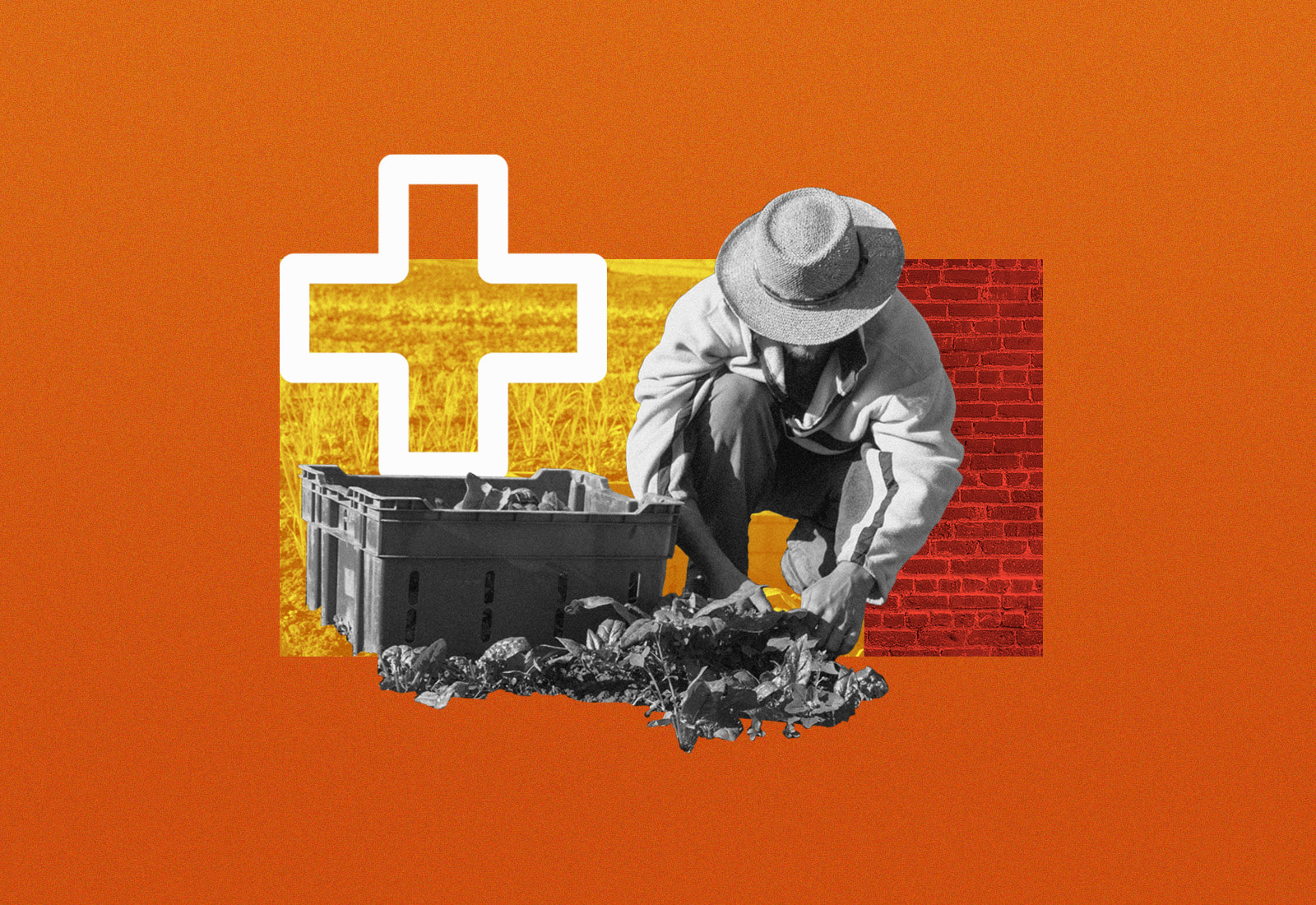Institute of Clinical Bioethics
Bridging the Healthcare Gap for Vulnerable Populations

Joseph Kelly, BS ’24, felt a wave of panic when he arrived at the Institute of Clinical Bioethics’ (ICB) new Rural Mobile Health Promoter site at a South Jersey blueberry farm last summer. He and several ICB fellows, accompanied by Spanish-speaking translators, were prepared to administer preventative healthcare to a group of migrant Hispanic workers living and working at the farm but there was just one problem: The migrants were Haitian and spoke Creole, not Spanish, as the fellows were told they would.
Knowing the Health Promoter services were vital to the workers putting in physically demanding 16-hour days in the summer heat, the students proceeded to set up their stations for medical, dental and eye screenings, and administer care without any verbal communication. As Kelly was assisting an older gentleman, the man uttered “Lespwa fè viv” in Creole.
“As I looked around for the interpreter, a young man behind me spoke up saying, ‘Lespwa fè viv’ means that ‘hope makes one live,’” says Kelly. “I left the farm not only with a few words added to my Creole vocabulary, but also a new perspective on how kindness and compassion are the ultimate translators, able to traverse any racial, ethnic or language barrier.”
The Rural Health Promoter program is one of five Health Promoter Clinics run by Saint Joseph’s Institute of Clinical Bioethics, which serve undocumented, uninsured and underinsured Africans, Asians, Hispanics, migrant farm workers and individuals with substance use disorder. This year, the ICB also introduced Chinatown and Kensington Health Promoter programs, which included physical and occupational therapy services, dental exams, cancer screenings and psych referrals.
“We started in 2010 as kind of a mom-and-pop shop and now we’re running five medical clinics,” says Peter Clark, S.J., BA ’75, PhD, McShain Ethics Chair, professor of theology and religious studies and ICB director. “No one else is caring for these patients; they’ve never seen a doctor before and we're seeing conditions we’ve never seen before. It’s good experience for our students and we’re helping the most vulnerable populations. We’re putting our Jesuit values into action; we’re not just talking the talk, we’re walking the walk.”
It’s good experience for our students and we’re helping the most vulnerable populations. We’re putting our Jesuit values into action; we’re not just talking the talk, we’re walking the walk.”
Peter Clark, S.J., BA ’75, PhD
McShain Ethics Chair, Professor of Theology and Religious Studies and ICB Director


